Development Cooperation between Iceland and Malawi
Development cooperation between Iceland and Malawi started in 1989, through Iceland's bilateral development agency, the Icelandic International Development Agency (ICEIDA). When ICEIDA was incorporated into the Icelandic Ministry for Foreign Affairs in 2016 the cooperation moved to the Ministry. The incorporation did not bring about any change in the cooperation between the two countries. An Icelandic Embassy was formally established in Lilongwe in 2004.
In the beginning, the focus was entirely on development in the fisheries sector by Lake Malawi but around the turn of the century ICEIDA's strategy changed and increased emphasis was placed on providing support for improvement of basic services (health, education, and water and sanitation) of rural communities in Mangochi District.
Since 2012, focus has been on a programme-based approach (PBA) at district level in Mangochi District, in collaboration with Mangochi District Council and the Ministry of Local Government. Mangochi District is the second largest district in the country, with approximately 1.2 million people. Following satisfactory results of cooperation between Iceland and Malawi, the two countries intend to deepen and broaden the bilateral development cooperation. After a successful and good collaboration with Mangochi District since 2012, Iceland has agreed to scale up its development cooperation in Malawi by partnering with Nkhotakhota District Council. The collaboration is planned to start in 2022. This follows a request by the Government of Malawi asking Iceland to expand its support to other district councils in the country. An assessment done by the Icelandic Ministry for Foreign Affairs on a potential new district partner in Malawi led to Nkhotakhota being identified as a suitable partner for Iceland, based on size, needs and potential alignment of priority sectors. As well as working on a district level in Malawi, Iceland also works with UN Agencies and Civil Society Organisations in Mangochi District and at the national level.
The overall goal of Iceland's development cooperation is to reduce poverty and hunger and promote general well-being in its partner countries, underpinned by the SDGs and the cross-cutting themes of human rights, gender equality and the environment. Iceland's development cooperation in Malawi aligns with Iceland's policy on international development cooperation, Iceland's Bilateral Development Cooperation Strategy and the Country Strategy Paper (CSP) for Iceland's development cooperation in Malawi 2023-2026.
Mangochi Basic Services Programme – MBSP
The main aid modality for Iceland in Malawi is a programme-based approach at district level, with local governments taking responsibility for ownership and implementation of programmes. The overall objective of the current programme support, the Mangochi Basic Services Programme, is to facilitate the efforts of the Malawi Government and Mangochi District Council, in particular, to improve livelihoods and socio-economic living conditions in rural communities in Mangochi District. This should result in a more resilient population and a more resourceful one for self-sufficiency. The MBSP aims to strengthen the delivery of basic services in the district through providing the Mangochi District Council with support and improved provision and use of basic services in these areas:
- Improved health care, particularly in maternal and neo-natal health as well as improving community-based health services in rural communities of Mangochi District.
- Primary education, providing more equitable access to education and improve the quality of education.
- Improved and increased access to clean, safe drinking water as well as improved sanitation and hygiene practices with the use of adequate sanitation facilities to reduce waterborne diseases and to promote better health and well-being.
- Community development for youth and women, emphasising economic empowerment and access to literacy and skills training.
- Strengthen the capacity and ability of Mangochi District Council to deliver quality services and ensure successful implementation of the programme.
The first phase of the Mangochi Basic Services Programme started in 2012 and ended in 2016 with the second phase of the programme, Mangochi Basic Service Programme II, following until 2021. Iceland extended the second phase of the programme to March 2023.
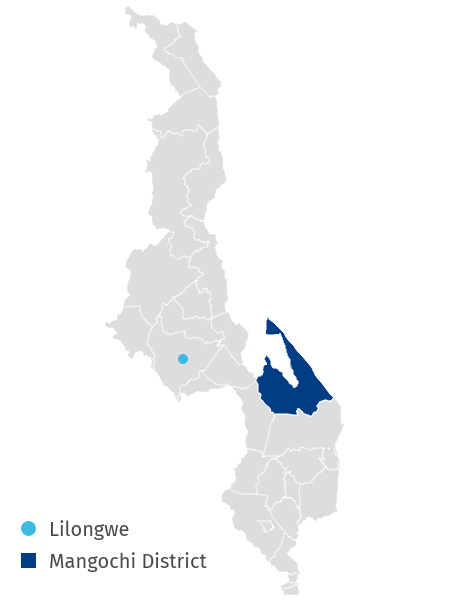
Iceland supports Malawian authorities in achieving the UN Sustainable Development Goals, mainly the following goals:
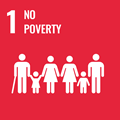
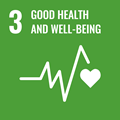
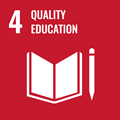
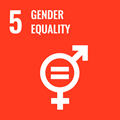
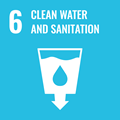
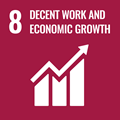
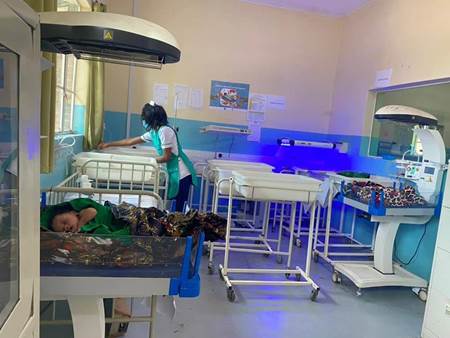 Under the Mangochi Basic Services Programme (MBSP) special emphasis is
placed on improving access to and use of quality maternal and child health
services as the maternal mortality ratio in Malawi is high. Furthermore, support
is provided to improving health services infrastructure in hard-to-reach areas,
such as health posts, maternities, staff houses, waiting homes and guardian
shelters. The new maternity ward at the Mangochi District Hospital which was
opened in 2019 by the former Minister for Foreign Affairs and Development
Cooperation, Guðlaugur Þór Þórðarson, has transformed the quality care in
Mangochi for expecting mothers. Capacity building and trainings of health care
staff is also a part of the MBSP, including support to Health Surveillance
Assistants who play a key role in the provision of community-based health
services which is very challenging in a district with 1.2 million inhabitants
spread over 6,000 km2.
Under the Mangochi Basic Services Programme (MBSP) special emphasis is
placed on improving access to and use of quality maternal and child health
services as the maternal mortality ratio in Malawi is high. Furthermore, support
is provided to improving health services infrastructure in hard-to-reach areas,
such as health posts, maternities, staff houses, waiting homes and guardian
shelters. The new maternity ward at the Mangochi District Hospital which was
opened in 2019 by the former Minister for Foreign Affairs and Development
Cooperation, Guðlaugur Þór Þórðarson, has transformed the quality care in
Mangochi for expecting mothers. Capacity building and trainings of health care
staff is also a part of the MBSP, including support to Health Surveillance
Assistants who play a key role in the provision of community-based health
services which is very challenging in a district with 1.2 million inhabitants
spread over 6,000 km2.
Public health results of the Mangochi Basic Services Programme since 2012:
The provision of quality education is a big challenge in Malawi. The education sector is underdeveloped and struggles with fulfilling its obligations to its students in terms of infrastructure, qualified teachers, teacher to student ratio and appropriate teaching materials.
The MBSP focuses on improved quality of primary education services in 12 targeted schools where 30,000 students have benefitted through a holistic approach. This includes, strengthening teaching and learning environment of the schools, construction of new classroom blocks and teachers’ houses, provision of teaching materials, adequate hygiene and sanitation facilities, safe drinking water as well as special changing rooms for girls menstruating. School meals are provided at each school which has contributed to improved school enrolment and keeping students in school, particularly girls.
Capacity building of teachers and school managers is provided as well as construction of teachers houses close to school grounds. In addition, MBSP also supports early childhood development (ECD) and two ECD centres have been built where programmes are operated.
Education results of the Mangochi Basic Services Programme since 2012:
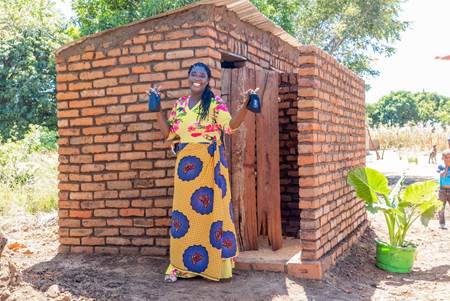 Increased and sustainable access to improved safe water sources, improved sanitation and hygiene practices in rural communities in Mangochi District as well as better management of water points and the water sector is a priority under the Mangochi Basic Services Programme. Four communities in Mangochi District have gained Open Defecation Free Status, meaning all households are provided with safe drinking water and adequate hygiene and sanitation facilities. As a result, no cases of waterborne diseases such as cholera have been detected since 2012 and fewer children suffer from diarrhoea than before. With improved sanitation and hygiene facilities it has also been possible to slow down the spread of Covid-19.
Increased and sustainable access to improved safe water sources, improved sanitation and hygiene practices in rural communities in Mangochi District as well as better management of water points and the water sector is a priority under the Mangochi Basic Services Programme. Four communities in Mangochi District have gained Open Defecation Free Status, meaning all households are provided with safe drinking water and adequate hygiene and sanitation facilities. As a result, no cases of waterborne diseases such as cholera have been detected since 2012 and fewer children suffer from diarrhoea than before. With improved sanitation and hygiene facilities it has also been possible to slow down the spread of Covid-19.
Water and Sanitation results of the Mangochi Basic Services Programme since 2012:
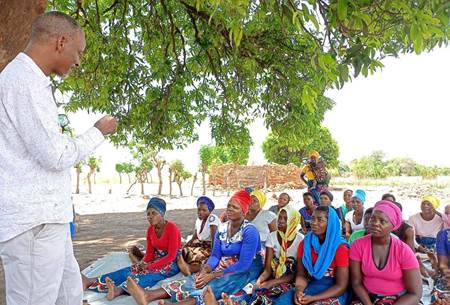 Gender inequality is widespread in Malawi and poses a serious challenge to development efforts in the country. Malawi has one of the highest rates of child marriages in the world, girls are less likely to receive education than boys, gender-based violence is very common and economic opportunities are less available to women as well as youth. Gender equality is a main priority in all of Iceland's development interventions including the Mangochi Basic Services Programme, both direct and mainstreamed interventions.
Gender inequality is widespread in Malawi and poses a serious challenge to development efforts in the country. Malawi has one of the highest rates of child marriages in the world, girls are less likely to receive education than boys, gender-based violence is very common and economic opportunities are less available to women as well as youth. Gender equality is a main priority in all of Iceland's development interventions including the Mangochi Basic Services Programme, both direct and mainstreamed interventions.
The integration of gender perspectives under the MBSP has been a crucial focus area in the field of maternal and infant health as well as within the education sector to prevent school dropout of adolescent girls. Furthermore, improvements in water and sanitation have a significant effect on health, environment and workload of women and girls who bear the main responsibility of fetching water. With new water points (boreholes and wells), access to safe and clean water is guaranteed and walking distance to water points is shortened, leading to time savings for women and girls, less physical strain, and more safety.
Under the MBSP, 580 women and youth are being trained as a part of a pilot activity in economic empowerment. The interventions are intended to address gender inequalities in economic opportunities and reduce poverty levels prevalent in targeted rural areas of Mangochi District. 13 women and youth business groups are participating and receive capacity building in strengthening technical and entrepreneurial skills, such as production and business skills as well as getting access to markets, financial services, and material support in agriculture.
Gender equality and youth empowerment results of the Mangochi Basic Services Programme:
According to the decentralization emphasis of the Malawian Government, Mangochi District Council must be responsible for overseeing the implementation of all MBSP components. Through MBSP a focus is put on enhancing the institutional capacity of the council to be able to carry out successful implementation of the programme as well as its development plans in a proper and timely manner.
Mangochi District Council ranks 10th out of 28 in an annual quality assessment of Malawi’s governance and processes. In 2016, the District Council ranked in 27th place out of 28. However, since 2017, the programme support through MBSP has supported various departments of the council such as department of finance, procurement and monitoring and evaluation to further increase its capacity to carry out implementation. The District Health Office was named the best health office in Malawi in 2019 and 2020.
Covid-19 Support to Mangochi District Council
Mangochi District Council received special support worth 125 million ISK from Iceland to coordinate and activate plans during the Covid-19 pandemic outbreak from 2020. Activities have included strengthening the capacity of health care providers to be able to carry out a Covid-19 vaccination campaign which resulted in approximately 6,200 people in rural areas being vaccinated for Covid-19 over a three-day period in December 2021. Furthermore, 500 health care staff received trainings in Covid-19 surveillance, contract tracing and health care. 14,000 students and teachers in four primary schools were provided access to running water for the first time at their schools and in their homes with the support. Access to water is secured through 2 solar-powered water supply systems and piped water from a local water board. From the beginning of the Covid-19 pandemic, 633,000 people were mobilized in Community Led Action to trigger collective behaviour change on Covid-19 prevention.
Cooperation with International Organisations
Iceland aims to avoid duplication of development efforts and seeks complementarities and synergies with other development partners. Iceland works both with UN Agencies and Civil Society Organisations in Malawi to complement interventions, both in Mangochi District and to respond to crisis at the national level.
World Food Programme – WFP
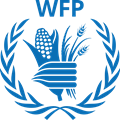 WFP, with support from Iceland, implements a Home-Grown School Feeding Programme in Mangochi District with the focus to support development activities that will strengthen education and agricultural sector capacity as well as addressing some of the causes of chronic food insecurity. The programme for the period 2021-2024 covers 12,742 students in 10 primary schools and 1500 farmers in Mangochi District.
WFP, with support from Iceland, implements a Home-Grown School Feeding Programme in Mangochi District with the focus to support development activities that will strengthen education and agricultural sector capacity as well as addressing some of the causes of chronic food insecurity. The programme for the period 2021-2024 covers 12,742 students in 10 primary schools and 1500 farmers in Mangochi District.
The project increases access to education for learners through diversified school meals while also enhancing nutrition knowledge and practices about the use of locally available food, promoting good sanitation and hygiene practices, and increasing incomes by connecting smallholder farmers to school markets. A daily school meal provides a strong incentive to send children to school. It allows children to focus on their studies and helps increase school enrolment and attendance and decrease drop-out. School meals are often the only regular and nutritious meal a child receives. Without school meals, hunger and micronutrient deficiencies typically affect school children and can lead to increased morbidity, reduced learning capacities and overall poor nutrition and health. Furthermore, through the project, small holder farmers including women’s farmers are empowered with knowledge, skills, and access to markets, which contributes to economic development of communities.
Tropical Storm Ana Support
Tropical Storm Ana affected over 900,000 people in Malawi destroying houses, crops and livelihoods in early 2022. Iceland supported WFP to deliver lifesaving assistance to those affected with a contribution of USD 300,000. This went towards supporting 45,000 people in the hardest hit communities.

Covid-19 Support to International Organisations
Iceland contributed USD 195,000 to WFP to ensure uninterrupted supply of relief items and logistics services in the wake of the Covid-19 pandemic in Malawi. The contribution increased the number of Covid-19 health facilities at borders, at Blantyre airport and within districts; transport and preposition relief items in remote and food insecure areas; and built the capacity of government officers in disaster risk reduction to better respond to disasters and emergencies. Six temporary shelters were put up and they used as laboratories and in-patient wards for Covid-19 patients. In addition, a vaccination centre was set up in Dzaleka refugee camp, which is home to about 50,000 refugees.
In collaboration with Iceland, WFP is providing children with school meals. Due to school closures during the Covid-19 pandemic, children and their families were provided with monthly contribution to ensure that school children continued having regular nutritious meals. When schools reopened in September 2021, the school meals started again and access to clean drinking water was improved to counter the spread of Covid-19.
Iceland supported UN Women and Go Fund a Girl Child (Malawian NGO) to respond to high cases of child marriages, teenage pregnancies, and gender-based violence following and during the Covid-19 pandemic
United Nations Population Fund – UNFPA
 UNFPA and Iceland's partnership focuses on advancing adolescent girls and women's sexual and reproductive health and rights (SRHR) in Mangochi District. The focus of the project is integrating services around family planning, obstetric fistula, and gender-based violence (GBV). The project empowers adolescent girls and women with knowledge and skills on SRHR and GBV to make informed decisions and exercise their rights. It further encourages communities and families to contribute to the fulfilment of adolescent girls and women's SRHR and access to quality of services, including family-planning, is being enhanced in the district.
UNFPA and Iceland's partnership focuses on advancing adolescent girls and women's sexual and reproductive health and rights (SRHR) in Mangochi District. The focus of the project is integrating services around family planning, obstetric fistula, and gender-based violence (GBV). The project empowers adolescent girls and women with knowledge and skills on SRHR and GBV to make informed decisions and exercise their rights. It further encourages communities and families to contribute to the fulfilment of adolescent girls and women's SRHR and access to quality of services, including family-planning, is being enhanced in the district.
The project is anchored around a human rights-based and gender-responsive approach where individuals and communities are informed and empowered at the same time as health service provision in their local setting is strengthened to deliver improved SRH services.

UN Women
 UN Women and Iceland’s partnership focuses on preventing and responding to gender-based violence, child marriages and teenage pregnancies as well as promoting women's economic empowerment. In recent years, cases of child-marriages and teenage pregnancies have decreased but cases increased again during the Covid-19 pandemic. In 2021, Iceland supported UN Women with a specific Covid-19 Emergency Humanitarian response to prevent and respond to child marriage, teenage pregnancies and violence against women and girls during Covid-19 in Malawi.
UN Women and Iceland’s partnership focuses on preventing and responding to gender-based violence, child marriages and teenage pregnancies as well as promoting women's economic empowerment. In recent years, cases of child-marriages and teenage pregnancies have decreased but cases increased again during the Covid-19 pandemic. In 2021, Iceland supported UN Women with a specific Covid-19 Emergency Humanitarian response to prevent and respond to child marriage, teenage pregnancies and violence against women and girls during Covid-19 in Malawi.
In 2021, Iceland also contributed to Malawi's first National Action Plan on United Nations Security Council Resolution no. 1325 on Women, Peace, and Security. Iceland supported the realisation of the NAP through UN Women.
Iceland developed a Barbershop Toolbox to enable others to mobilize the men around them for gender equality. The Toolbox is part of Iceland's commitments to the HeForShe movement. In 2018, the Barbershop Toolbox was launched in Malawi in both Mangochi District and Lilongwe respectively. The Barbershop events in Malawi were the first to take place in the continent of Africa. Both UN Women and UNFPA have used the Barbershop Toolbox in their programming to further engage men and boys to tackle social norms that may fuel gender-based violence and mobilize men to become agents of change in their society and work towards gender equality.
In 2020, the Barbershop Toolbox was translated and adapted to the Malawian context by Brother 2 Brother to further mobilize more men and boys in the work towards gender equality in Malawi. The Zida Zaku Babashopu toolbox was developed and tested in Mangochi District in March 2021.

Energising Development (EnDev)
 Iceland's partnership with GIZ-Energising Development programme (EnDev) focuses on providing access to clean energy in Mangochi, improving productive use of energy and increasing demand and use of improved cookstoves and small-scale solar appliances for off grid household. In addition, solar energy is being provided to social institutions and infrastructure such as schools and health facilities. With funding from Iceland, EnDev has for example constructed seven cooking shelters at seven health centers in Mangochi District, providing access to clean cooking for both guardians and patients that visit facilities.
Iceland's partnership with GIZ-Energising Development programme (EnDev) focuses on providing access to clean energy in Mangochi, improving productive use of energy and increasing demand and use of improved cookstoves and small-scale solar appliances for off grid household. In addition, solar energy is being provided to social institutions and infrastructure such as schools and health facilities. With funding from Iceland, EnDev has for example constructed seven cooking shelters at seven health centers in Mangochi District, providing access to clean cooking for both guardians and patients that visit facilities.
Endev supported the construction of 7 double and 1 single units of the novel Chitofu 3-in-1 fish processing stove for parboiling, frying, and smoking of fish. The Chitofu 3-in-1 is a fuel-efficient fish processing stove which according to research and user feedback, saves firewood use and processing time of over 70%, compared to traditional methods.

About Malawi
Malawi is a landlocked country in southern Africa sharing common borders with Zambia, Tanzania, and Mozambique. The capital of Malawi is Lilongwe. Lake Malawi, the third largest lake in Africa, covers about one-fifth of the country’s total area. Malawi is a small country about the size of Iceland. Estimated population is 20.1 million people, making it one of the most densely populated countries in Africa. The majority of the population (80%) live in rural areas and depend on subsistence farming for their livelihoods.
The main characteristic of the population is its young age structure, with 77% of the total population under the age of 24 which has implications for socio-economic development in the country. Malawi is amongst the poorest countries in the world ranking number 169 out of 191 on the Human Development Index (HDI)
